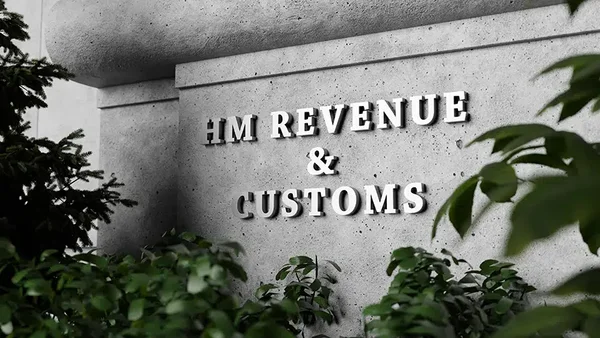Understanding UK Tax Residency

Determining whether you are a UK tax resident is crucial for understanding your tax obligations. Your residency status affects the amount of tax you will owe and whether you need to pay taxes on foreign income. The rules governing UK tax residency can be complex and depend on various factors, including the length of time you spend in the UK and your connections to the country.
UK tax residency is generally assessed using the Statutory Residence Test (SRT). The SRT considers the number of days you spend in the UK within a tax year, your ties, and whether you work full-time in the UK. Misunderstanding these criteria can lead to penalties or incorrect tax filings, making it essential to get it right.
With numerous personal and financial implications, understanding UK tax residency is necessary for anyone who spends significant time in the UK or has substantial financial and family connections to the country. The process might appear daunting, but Expert tax assistants available can make it manageable.
The Statutory Residence Test (SRT)
The Statutory Residence Test (SRT) is the primary method used to determine UK tax residency. It breaks down residency into several criteria concerning the number of days spent in the UK, work patterns, and personal ties.
Essentially, if you spend 183 days or more in the UK during a tax year, you will be considered a UK resident. Moreover, you should also consider additional connections like family relations, accommodation, and UK-based work to establish your residency more accurately. Evaluate your ties carefully to comply with HMRC requirements effortlessly.


The Importance of Tax Residency
Understanding your tax residency status in the UK is vital because it affects your tax liabilities significantly. UK tax residents are required to pay taxes on both their UK and worldwide income, while non-residents are only taxed on their UK income.
Additionally, residency status can impact your eligibility for various reliefs and allowances. By properly identifying your residency status, you can plan your finances more effectively, avoiding penalties and optimising your tax obligations.

According to HMRC data, about 6.3 million people in the UK are considered non-domiciled, while 4.2 million record foreign income.Recent Residency Statistics

A recent report highlights that 30% of UK tax residents need to declare foreign income, affecting their overall tax liabilities significantly.Foreign Income Impact

Factors Affecting Tax Residency
The UK tax residency status is influenced by multiple factors that go beyond just the number of days you spend in the UK. Apart from the 183-day rule, other elements like work patterns, accommodation, and personal ties play a crucial role in determining your status. For instance, having an employment contract in the UK or owning a home can both strongly influence your residency status.
Additionally, personal ties such as having a spouse or children living in the UK may also count towards your residency determination. It’s essential to keep records and review these factors annually to understand your residency status accurately.
How to Maintain Non-Residency
If your aim is to maintain non-residency status in the UK, you need to be cautious about the time and ties you establish within the country. Spending fewer than 183 days in the UK within a tax year can help you maintain your non-residency status.
Moreover, minimising personal and financial connections to the UK can further establish your non-resident status. If you have employment or property in the UK, regularly review your situation with Expert tax assistants to ensure compliance.

Tips for Determining Residency

Keep Track of Days Spent Always keep a record of the number of days spent in the UK to determine your residency accurately. Ignoring this might lead to unexpected tax penalties.

Review Personal and Financial Connections Regularly review connections such as family, property, and employment, as these will impact your residency status.

Seek Professional Advice Tax laws are complex and regularly updated. Consulting expert tax assistants can help you stay compliant and avoid errors.

Fun Facts
Did you know that you can lose your UK tax residency status if you spend less than 16 days in the UK during a tax year?
How to Handle Residency Status

Handling your UK tax residency status requires a proactive approach. First, you should familiarise yourself with the Statutory Residence Test (SRT) and other residency rules. Calculating the days spent in the UK and understanding other criteria like employment and familial ties will give you a clear picture of your residency status.
Secondly, regularly review your residency status, particularly if you travel frequently or have complex financial arrangements. Regularly consulting tax professionals can provide valuable insights and facilitate correct tax filing, potentially saving you money.

Reviewing your tax residency status periodically can save you from future complications and penalties. Even minor changes in your personal circumstances could alter your residency status. Regular Reviews

Effective tax planning requires a proactive approach. Regular consultations with tax professionals can help you navigate complex regulations and optimise your tax obligations. These reviews will ensure you make informed decisions, potentially leading to significant tax savings and better financial management. Proactive Planning
Summary
Understanding and determining your UK tax residency is essential to ensure you are meeting your tax obligations correctly. The process involves not just calculating the number of days spent in the UK, but also evaluating ties such as employment, property, and family connections.
Using a user-friendly platform to track your residency status and consult with experts can simplify this process. Regularly reviewing your status and seeking professional advice will significantly ease your tax planning and compliance, minimising risks of penalties or errors.
Frequently Asked Questions
How do I check my UK tax residency status?
To check your UK tax residency status, you can use the Statutory Residence Test (SRT) or consult expert tax assistants for an accurate assessment.
What is the 183-day rule for UK tax residency?
The 183-day rule states that spending 183 days or more in the UK within a tax year makes you a tax resident. Consider using tools for precise tracking.
Can I be a tax resident in more than one country?
Yes, it's possible to be a tax resident in more than one country. In such cases, double taxation agreements often apply, which can help manage your multi-country obligations.
How does tax residency affect my foreign income?
Tax residency affects how your foreign income is taxed. UK residents are taxed on worldwide income, whereas non-residents are taxed only on UK income.
What are the consequences of incorrectly declaring tax residency?
Misdeclaring tax residency can lead to penalties and interest from HMRC. It's crucial to get it right, and consulting with expert tax assistants can help ensure accuracy.











